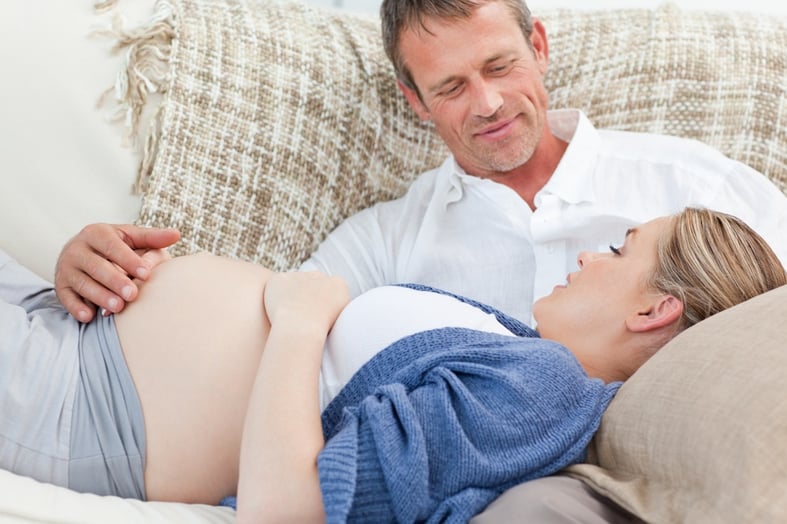
Nowadays, the average age at which couples are deciding to start a family is becoming much later than it’s been for previous generations.
The average age for a first birth in the UK is 29, but the number of women aged between 30 and 34 giving birth has increased steadily in the past 10 years. And a study of 3,000 young mothers found that when it comes to maternal health, 34 is the best age for women to have their first baby. Why? Because women who put their families on hold to establish their careers don’t lose out.
So what is ‘older’ parenthood? 35? 40+? Giving birth, or even just trying to conceive, becomes a little more complicated as the biological clock ticks on. But that’s not to say it can’t happen, and many ‘older’ couples go on to have a healthy pregnancy and a healthy baby. Here are our best tips for older couples who’re deciding to start a family in the next couple of months…
- Schedule a preconception appointment – your health care provider can review your medical history, current medications and general wellbeing. This gives you the opportunity to express any concerns about conceiving after the age of 35, what your chances of successful pregnancy are, and how best to prepare your body for a baby.
- Eat healthily and work out together – eating healthy is a natural way to boost your fertility and exercising will increase oxygen intake to various parts of the body including the reproductive system. If you’re doing these things as a couple, it’ll be much easier, and you’ll keep each other motivated.
- Take prenatal vitamins – start taking vitamins while you’re trying for a baby to help avoid birth defects. With increasing age, the chances of having a baby with a birth defect do increase, so it’s important to make sure you’re getting the right nutrients. Read our post on what supplements to take and what to avoid.
- Control your stress levels – stress doesn’t impact conception directly. However, stress may cause a whole host of other irregularities, like interrupted sleep, unhealthy eating, weight gain etc.
- Use an ovulation kit – to know precisely when you are ovulating, use an ovulation kit that works a bit like a home pregnancy test. This will help you know when you are most likely to conceive.
And if you’re following all of the above five steps and more, and you’re still struggling to conceive after a year of unprotected sex, then seek advice from your GP or fertility specialist.
How much do you ereally know about preparing your body for pregnancy? Find out if you’re a Maternity Mastermind with our quiz and get your free downloadable factsheet!





